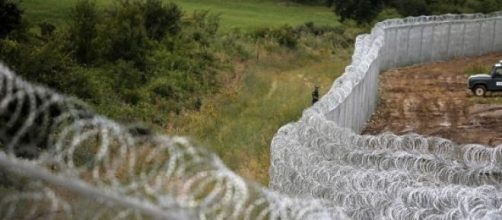According to the Italian newspaper Leggo, the Hungarian Parliament, this past Monday night, 6th, approved the building of a fence along the entire border with Serbia. Exploiting the majority and extreme nationalists of Jobbik Party's votes, the controversial law provides for the expulsion of the immigrants from Hungary, through an accelerated procedure. This law - basically a change of an existing Immigration law - limit the right of asylum in Hungary, in response to the record number of migrants and refugees who have arrived in the country this year (about 67,000).
The new rules, strongly criticized by the UN refugee agency, permit to the Hungarian authorities to cancel the asylum applications, where applicants leave their designated residence in Hungary for more than 48 hours without permission. "Balkan route", which starts at the maritime border between Turkey and Greece and bring immigrants - asylum seekers and refugees - through Macedonia and Serbia to Hungary, is the focus of a new report by Amnesty International.
Apparently were reported violence and extortion from border authorities and criminal gangs, people left to themselves, without translators and legal assistance, arrested, rejected from a border to another, like ping-pong balls. Such situations - and even some tension between law enforcement - were reported to the crossing of some countries belonging to the European Union, such as, for example, between Italy and France and between Italy and Austria.

